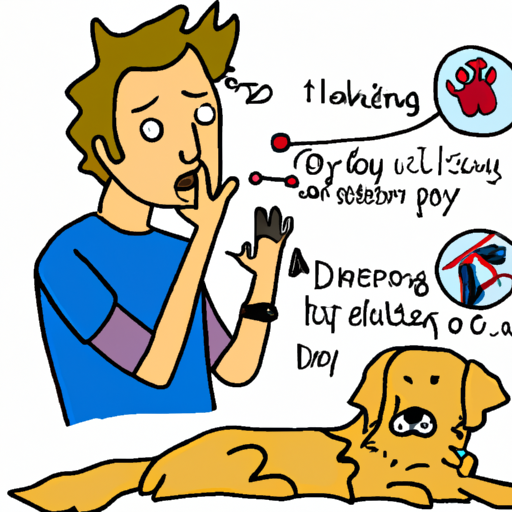1. Understanding the Canine Language
As a caregiver, you know that your dog can’t speak in words. Instead, they communicate their feelings, needs, and concerns through their actions. One of these actions is licking. Occasional licking is perfectly normal, but excessive licking could be a sign of underlying issues.
Consider this scenario: you’re sitting on the couch, and your dog keeps licking your hand, or maybe they’re constantly licking their paws. Understanding the “why” behind these actions can help you provide better care.
2. The Common Reasons Behind Excessive Licking
Dogs lick for various reasons, and it’s essential to understand the most common ones.
| Reasons for Excessive Licking | Description |
|---|---|
| Boredom | Dogs might resort to licking when they are bored or anxious. |
| Skin conditions | Allergies or infections could make your dog’s skin itchy, causing them to lick excessively. |
| Pain | Licking a specific area could be an indication of pain. |
| Behavior issues | Some dogs lick out of habit or as part of a compulsive behavior. |
3. The Importance of Observation
You are the best observer of your dog’s behavior. Notice when and where they lick excessively as these points could provide clues to the underlying issue.
- Time: Do they lick more often at a particular time of day?
- Location: Do they lick a certain body part or object excessively?
- Situation: Are there specific situations or triggers that lead to excessive licking?
4. When to Seek Professional Help
While some licking is normal, it’s crucial to know when to seek professional help. Excessive licking, especially when it’s causing skin damage, interrupting daily activities, or associated with other signs of illness, should be a cause for concern.
5. How to Discourage Excessive Licking
Even after addressing any potential underlying issues, some dogs may continue to lick out of habit. Here, behavioral modification strategies can help.
- Distraction: Use toys, games, or treats to divert their attention.
- Training: Teach commands like “leave it” or “stop” to control licking.
- Positive Reinforcement: Reward your dog when they stop licking on command.
Frequently Asked Questions (FAQs)
Q: Is excessive licking a sign of anxiety?
A: Yes, just like humans, dogs can express anxiety through repetitive behaviors like excessive licking.
Q: How can I identify if my dog’s licking is due to pain?
A: If licking is concentrated in one area, especially if it is accompanied by limping, swelling, or sensitivity, it may indicate pain.
Q: Should I use a deterrent spray to stop my dog from licking?
A: It’s best to consult with a vet before using any products. While some can be effective, others may cause irritation or allergic reactions.
Q: Can excessive licking lead to more serious problems?
A: Yes, excessive licking can lead to skin infections, wounds, and other health issues. If your dog is licking excessively, it’s best to seek professional advice.



